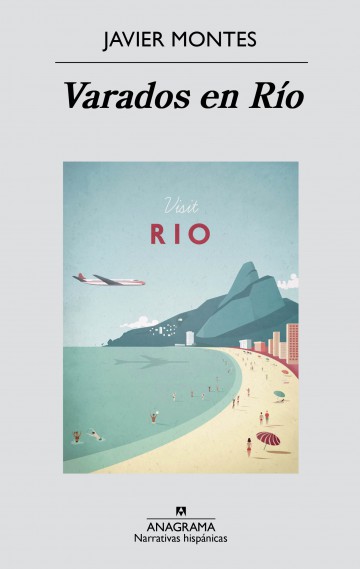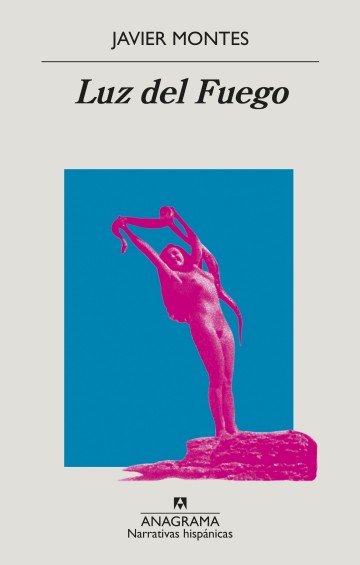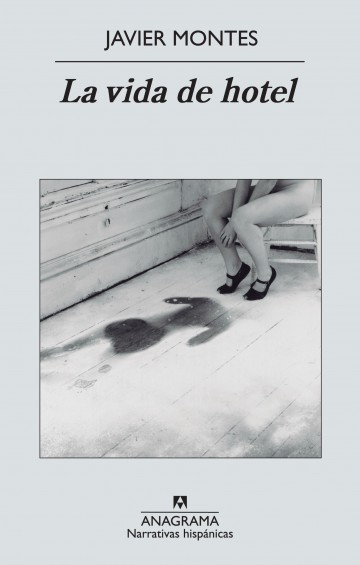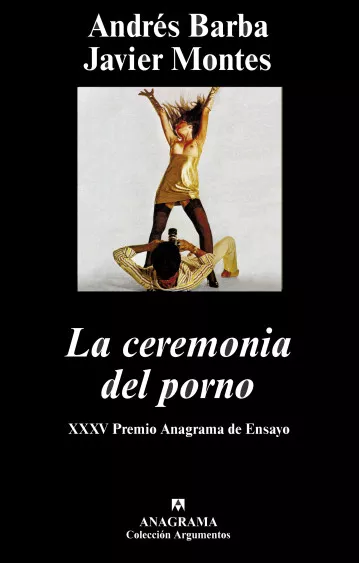| PAGES | 312 |
| SERIES | Narrativas hispánicas |
| PUBLICATION | 04/05/2016 |

SERIES:Narrativas hispánicas
We’re used to feeling expelled from Paradise, but what happens when we find ourselves expelled in Paradise? When we are offered beauty and the illusion of happiness, which we are unable to accept?
Rio de Janeiro is both a place and an idea. For many it has long represented image and desire; a place that precipitates and renews humanity´s age old fantasies. A city with a place in an imaginary world map where Jauja, Shangri-La, Xanadu and El Dorado also exist. In summary: an earthly paradise, la cidade maravilhosa where beauty, sun, voluptuous bodies and the joy of perpetual carnival coexist. But it is also a difficult place to be an exile: the people who don´t believe the promises that Rio represents but who need to keep hearing them. Seen through the eyes of foreign writers who find themselves lost there, it also becomes poverty stricken and rainy, dreamlike and violent. Rio´s secret pleasures described by Manuel Puig; the ramshackle and hostile Rio that Rosa Chacel discovered; the legendary and sophisticated Rio of the 50s, of the ultra-modern houses, political intrigue and the gilded bohemia that Elizabeth Bishop knew; the Rio painfully distant from the photos of Stefan Zweig´s suicide.
Like a character in a detective novel, Javier Montes retraces his almost invisible footprints to write a collective story of globalised city and the way that exile can change us. More than a home, Rio was for them a place where they began to question the meaning of the word: why we travel and what coming home means.
Half travel diary and half literary essay, Javier Montes again demonstrates a rare talent to transcend genre without losing narrative momentum. As J. Ernesto Ayala-Dip wrote in El País: «Javier Montes is not innocent. It was said that André Gide was the greatest anti-novel novelist. That´s not to say that Montes writes like Gide. But like him, he writes classic novels that offer a renovated vision of the genre. A singular way of creating stories for today.»
«A literary work that satisfies the reader both because of itsdiscoveries and reflections of a city like Rio, and because of its exploration of the meanings of exile through the eyes of four writers… Without doubt,a great work that brings a singular pleasure, page after page of enjoyable reading» (Santiago Aizarna, El Diario Vasco)
«A complex, ambitious and unclassifiable book. A portrait of a city taken from the experiences of four writers (alongside the author himself)» (Ángel Vivas, El Mundo)
«In this book, Javier Montes attempts to go deep into the peculiarities of exile, interweaving his own experiences in Rio de Janeiro, where he lived for some time, with that of four other writers who once lived there: Manuel Puig, Rosa Chacel, Elisabeth Bishop and Stefan Zweig. Following their tracks like a detective from a noir novel, a versatile Montes turns to diverse genres to study the ways in which exile can change us» (Javier Yuste, El Cultural).
You can read some fragments translated into English for Brick Magazine and Granta:
http://brickmag.com/manuel-puig-and-face-hedy-lamarr
http://granta.com/Samba-e-Choro/
| PAGES | 312 |
| SERIES | Narrativas hispánicas |
| PUBLICATION | 04/05/2016 |


Javier Montes (Madrid, 1976) won the Premio José María de Pereda with his first novel, Los penúltimos. He then published his second novel, Segunda parte, both with Pre-Textos. Along with Andrés Barba, he won the Anagrama Essay Prize for La ceremonia del porno. In 2010, Granta included him in their selection of “Best Young Spanish-Language Authors.” He has also collaborated with El País, Granta, Artforum, and The Literary Hub, and his work has been recognized by the Civitella Ranieri Fellowship, the Leonardo Scholarship by the Fundación BBVA, and by an invitation as a writer to the MALBA residency in Buenos Aires. At Anagrama, he has also published La vida de hotel [Hotel Life] and Varados en Río [Stranded in Rio]: “Marvelous…a great exercise in the slippery art of cinema” (Michael Ondaatje); “Enviable naturalness. The reader enjoys taking their time on each page and is compelled by the desire to know the conclusion” (J.A. Masoliver Ródenas, La Vanguardia); “A convincing invention that eloquently about the breach that separates our actions from the stories we tell ourselves” (Ollie Brock, Times Literary Supplement); “Beautiful and revealing” (Inés Martín Rodrigo, ABC).





